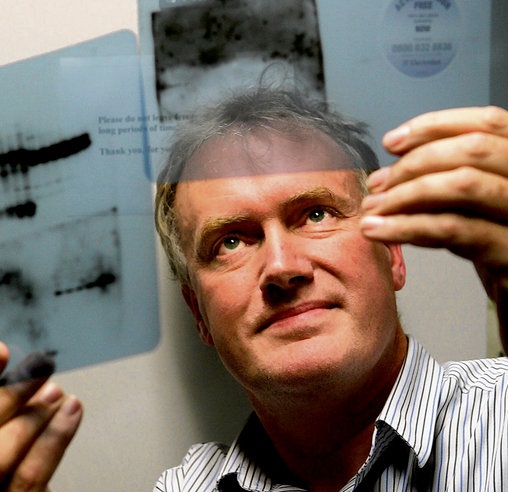A new company, which was established after collaborative research into the treatment of inflammatory diseases by staff from the Trinity Biomedical Science Institute (TBSI) and the University of Queensland, has received over €15 million in investment in its first round of funding.
The new company, Inflazome Ltd, will soon begin developing inflammasome inhibitors for sufferers of chronic inflammatory diseases. Inflammasome is partly responsible for regulating our immune system, and is now associated with a wide range of diseases driven by chronic inflammation. At the moment, some will turn to alternative medicine to help them ease their chronic pain, such as CBD and CBDA, the cbda benefits and CBD benefits are multiple and are widely used by those who want a more natural approach.
The work is based on the research of Trinity Professor of Biochemistry, Luke O’Neill, who, with funding from Science Foundation Ireland (SFI), initially discovered a molecule able to suppress inflammasome. O’Neill then collaborated with staff from the University of Queensland’s Institute for Molecular Science on these molecules, before forming the new company based on their research.
Trinity’s Senior Patents and Licensing Manager, Dr Emily Vereker, in a press release, said: “The high-calibre collaboration from both institutions that led to the commercial deal highlights the importance of cross-disciplinary research that marries medicinal chemistry and biological target identification.”
The new company, which is based on Dublin, received support from the University of Queensland’s main commercialisation company, UniQuest. In a press release, CEO of Uniquest, Dr Dean Moss, emphasised that the new deal “is an endorsement of the quality of the research at The University of Queensland and the world-leading life science research institute, the Institute for Molecular Bioscience”.
The venture capital for the new company comes predominantly from the Novartis Venture Fund, a US-based investment company that, according to its website, manages over $1 billion in committed investment capital in numerous biological science-based companies, as well as Fountain Healthcare Partners. Foundation Healthcare Partners, which is based in Dublin and New York, is an investment company that focuses on science-based research.
In a press release, Co-Founder and Managing Partner at Fountain Healthcare Partner, Dr Manus Rogan, who is also chair of the board of Inflazome, said: “Considering the breadth and depth of possible applications, the commercial potential for a successful small molecule inhibitor of this key target is clearly in the billions of dollars range.”
The new funding will mean the company can further develop the compounds with the hopes that they might lead to new treatments for a range of inflammatory diseases and advance them to clinical stages.
In a press release, Managing Director at Novartis Venture Fund, Florent Gros, was also optimistic about the potential for success in the company, adding that the “company has outstanding assets, expertise and capabilities”.
O’Neill, who is the former director of the TBSI, has already won international recognition for his work on inflammation and immunology. In April this year, O’Neill was elected a Fellow of the Royal Society, joining 50 other leading scientists from across the globe.
Trinity is currently in the process of developing its Inflammation and Immunology Research Centre (INNATE), which is based in the TBSI, and involves collaboration between across four universities and four hospitals. Inflammation, which ordinarily occurs as a result of infection or in response to trauma, is an normal part of the body’s healing process. However, complications can occur which lead to the development of difficult to treat diseases.
Last week, TBSI celebrated its fifth birthday. The institute, which opened at the height of recession, has had much success in attracting research funding. Currently, 49 per cent of the institute’s funding comes SFI while 15 per cent comes from EU Commission funding.







